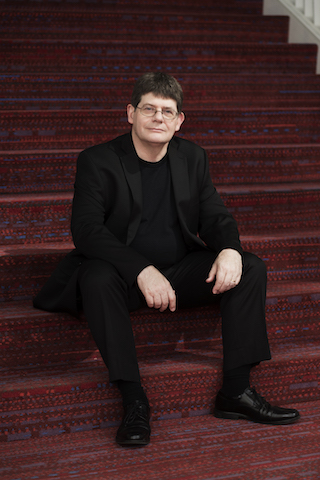
Despite a relatively short tenure with Seattle Opera, outgoing general director Aidan Lang has made quite a mark on the company in his five years in the Northwest. Lang, who will leave Seattle at the end of the Opera’s 2018-19 season to become general director of Welsh National Opera, has fostered an innovative company culture dedicated to shaking off dusty perceptions of the art form and engaging in good-faith community conversations around social justice and representation.
In addition to top-tier traditional productions on the McCaw Hall mainstage, Seattle Opera has increased its focus on envelope-pushing chamber operas, the most recent of which was O+E, an all-female reimagining of the Gluck opera Orfeo et Euridice. Under Lang’s watch the Seattle Opera has also increased its percentage of ticket-buyers under age 50 to 40 percent — no mean feat in the opera world — and in early December the company opened up a new, long-awaited civic space near its performance home of McCaw Hall.
While a longtime associate stepping into leadership might not seem like a seismic shift for a theater company, Bill Berry’s reign at The 5th Avenue Theatre is shaping up to be an exciting one. Producing Artistic Director Berry became the company’s creative head when longtime Executive Producer and Artistic Director David Armstrong stepped down in 2018. Highlights of Berry’s first season are the national tour of Come From Away and a premiere in the spring of the new Edgar Degas-inspired musical Marie, written by Lynn Ahrens and Stephen Flaherty and directed and choreographed by Susan Stroman, Tony winners all.

More exciting still are the company’s evolving developmental programs, including the 2018 debut of First Draft: Raise Your Voice, a program “designed to introduce and nurture new musical theater writers from traditionally marginalized populations into a national musical theater landscape.” The program’s first incarnation sought submissions from women, gender nonconforming and nonbinary artists; four writing teams recently received a commission that supports the writers through a one-year gestation of a first draft. At the end of a year, The 5th will produce a one-week reading, with a final presentation in New York City, allowing commissioned writers to showcase their work for national industry leaders. Time will tell how the nascent program plays out, but hats off to The 5th for putting substantial money where its mouth is in terms of industry inclusion.
Velocity Dance Center leader Tonya Lockyer recently stepped down after 16 years with the company, the last seven as artistic executive director. “Leadership change is essential for contemporary organizations to remain responsive to the moment,” Lockyer said in a statement. “Now is the best time for Velocity to have a new leader to take the organization forward.”
Her by-the-numbers accomplishments are impressive ($2 million in direct and in-kind support to artists; growing Velocity’s audiences by 398 percent), but Lockyer will also be remembered for transforming Velocity into both a dance venue of national import and as an incubator for Seattle talent. Though programs like Next Fest NW and Made in Seattle, to name just a few, Velocity has fostered the careers of dancer/choreographers such as Kate Wallich, Alice Gosti and many more.
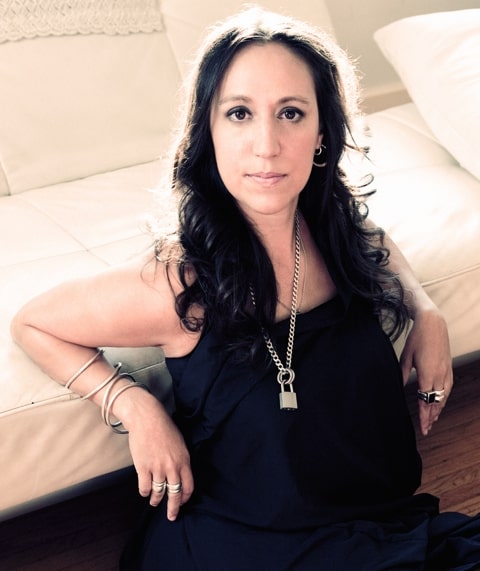
An exciting new voice joined the Seattle curatorial chorus in September, when Shamim M. Momin took over as senior curator of Henry Art Gallery. Momin came to Seattle from Los Angeles, where she served as curator of Los Angeles Nomadic Division, the public-art nonprofit she founded in 2009. Building on her 10-plus years of experience at the Whitney Museum in New York, including co-organizing the 2004 and 2008 Whitney Biennials, Momin created LAND with a commitment to curating site- and situation-specific public art exhibitions.
“We believe that the public deserves the right to experience innovative and thoughtful contemporary art in their day-to-day existence, something beyond the museum or gallery context,” Momin told Artsy in 2015. “We also believe that artists deserve the opportunity to realize projects and ideas that might not make sense in a museum or gallery, which lends itself to our structure.” Momin’s first exhibition with the Henry is Edgar Arceneaux’s architectural installation Library of Black Lies, which is open at the venerable University of Washington gallery through June 2, 2019.
City Arts, a Seattle magazine dedicated entirely to our local arts and culture scene, closed up shop in November after 12 years in operation. The monthly print magazine had parted ways with longtime publisher Encore Media Group in June and sought to establish an independent presence funded by memberships, community support and private investment.
“One thing we accomplished was giving ink to the voices of artists who often get omitted or erased from coverage,” publisher Andy Fife told Crosscut, referencing the magazine’s long history of showcasing diverse artists and art forms. City Arts seems to be another casualty of our city’s (and country’s) fast-diminishing arts journalism scene and, while Fife expressed hope for a digital-only future for the publication, no plans have been announced.
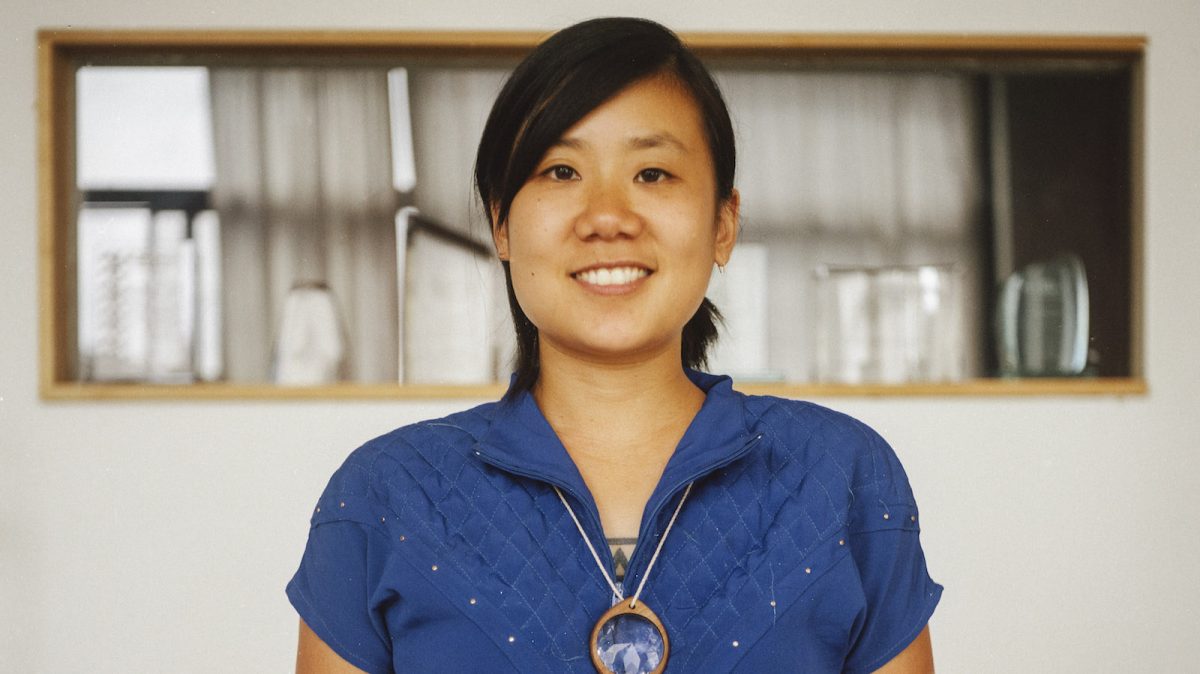
In October, Northwest Film Forum Executive Director Courtney Sheehan passed the baton to activist and filmmaker Vivian Hua, a pivotal figure in the organization’s community outreach and former NWFF design lead. The two women first met while working on The Seventh Art Stand, a national civil rights film and conversation series they co-founded in response to Trump’s first travel ban. Sheehan, who stepped into her leadership role at NWFF in 2013, has turned the venue into a hub of civic engagement, hosting live performance and public discussion in addition to its robust film programming, a tradition Hua will likely continue. “Vivian was largely responsible for rethinking the organization’s visual identity, and she has a comprehensive perspective when it comes to developing programs with community members, and doing outreach in meaningful ways,” Sheehan told City Arts magazine. “I could not feel more happy, comfortable and confident in her capabilities.”
Tacoma’s cultural community will get a serious financial boost when Tacoma Creates, a citywide tax to fund the arts, goes into effect Jan. 1. In 2015, the Washington state Legislature passed a law allowing communities to vote to tax themselves to fund local arts, culture, science and history organizations; Tacoma voters passed Tacoma Creates (also known as Proposition 1) by more than 64 percent of the vote in November. The facts and figures, in brief: the sales-tax hike of one-tenth of a percent will raise an estimated $5 million a year, to be managed by the City of Tacoma’s Office of Arts & Cultural Vitality. The city council will appoint an independent advisory board to develop criteria and guidelines for funding and monitor and evaluate the program results. Many Seattle arts lovers were bummed when Access for All, King County’s version of an arts funding bill, failed at the ballot box in 2017, so it will be exciting to see how this cash infusion benefits our creative neighbors to the south.
More ins and outs:
The Black Tones’ lead singer Eva Walker took over as host of KEXP’s long-running, locally focused radio show Audioasis, taking over for DJ Sharlese Metcalf. It’s been a good year all around for KEXP, which landed an anonymous $10 million donation in April.
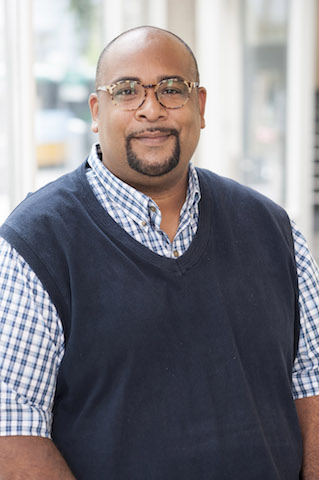
Tim Lennon became the first executive director of Langston, the nonprofit arts group operating out of Langston Hughes Performing Arts Institute. Ashraf Hasham stepped into the executive director role Lennon vacated at The Vera Project, and Brian Carter became the second-ever executive director of 4Culture, taking over for Jim Kelly, who had been with the organization for 25 years and had grown it into the largest cultural funder in Washington state.
Seattle Symphony’s principal guest conductor Thomas Dausgaard will take over as the SSO’s music director in September 2019, following the departure of current MD Ludovic Morlot. Benedict Heywood became executive director of Bellevue Arts Museum in 2017, but 2018 showcased the fruits of his early labors. In particular, BAM’s role as a key partner and venue for the city’s increasingly high-profile Bellwether exhibition, an annual event reinvented last year by artist trio SuttonBeresCuller.
Independent poetry press Gramma closes up shop at the end of 2018, after two years of publishing gorgeous books and throwing great parties, among many other projects. Editors Colleen Louise Barry and Aiden Fitzgerald are reportedly on the hunt for another PNW press to adopt Gramma’s books and authors; their exuberant, expansive thinking will be missed.
More spaces and places
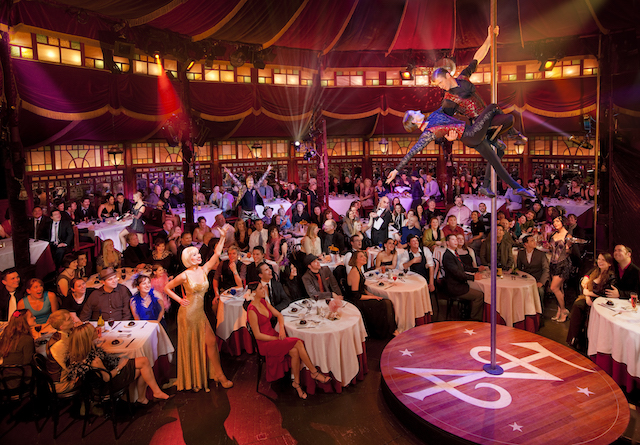
Teatro ZinZanni’s rocky 2017 saw it booted from its longtime home on Mercer Street in Lower Queen Anne, but the dinner-theater-circus extravaganza is now up and running in a new permanent home in Woodinville, at the site of the former Redhook Brewery. A Chicago ZinZanni show will open in April 2019.
Also of note: A theater company to watch, Copious Love Productions, takes over stewardship of Ballard Underground in January, literary lodestar Hugo House recently returned to its revamped home on Capitol Hill, mammoth arts complex Alma Mater continues to make waves in Tacoma, and Seattle Symphony will open its impressive new Octave 9 Raisbeck Music Center at Benaroya Hall in March, a flexible performance venue with tech-heavy features, including modular surround screen and responsive video and acoustics.
Last August, local nonprofits Seattle JazzED and Capitol Hill Housing announced that they joined forces to purchase a $2.4 million piece of land in South Seattle. A timeline is TBD, but plans include a mixed-use venue with rehearsal, classroom and performance space on the ground floor and affordable housing units above.






